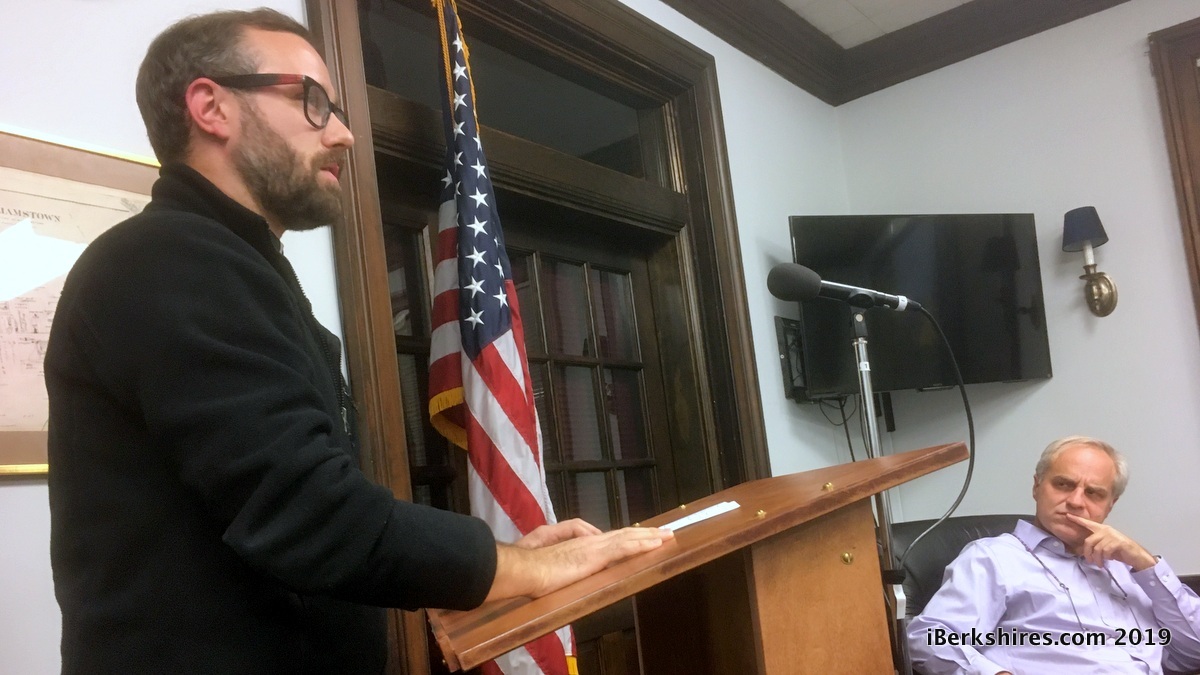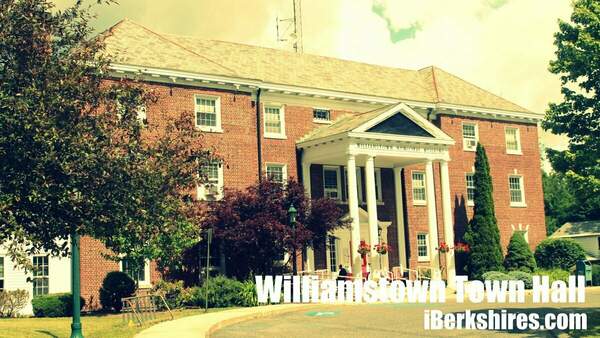
Williamstown Select Board Seeks New Proposal on Parking Regulations

WILLIAMSTOWN, Mass. — The Select Board hit the brakes Monday on proposed changes to town parking bylaws.
Town Manager Jason Hoch at the Oct. 7 meeting presented a series of changes outlined in a memo from Police Chief Kyle Johnson. Together, Hoch and Johnson took stock of the town's parking rules over the last year after substantial completion of the construction on and around Spring and Latham streets prompted a revision to the spots designated as legal in the town's bylaws.
From that conversation sprung a wider evaluation of the bylaws and proposals that would impact parking throughout the town, from lifting the ban on overnight parking to taking time limits off Park Street. Hoch said at the Oct. 7 meeting that he hoped to give the board time to consider the proposals before approving any changes at its Oct. 21 meeting.
But at that Oct. 21 meeting, all five members of the Select Board said they had heard many concerns from residents about the changes.
"We've heard from a lot of folks," said Chairman Jeffrey Thomas, particularly comments in regards to potentially allowing overnight parking Spring Street lot and changes on Park Street. "These are great. We love to hear from the community."
Three members from the community came out Monday to be heard.
First, the Rev. Nathaniel Anderson, pastor of St. John's Episcopal Church on Park Street, spoke against lifting time limits on Park Street. While churches tend to be "underutilized" buildings outside of Sunday services, St. John's is not.
"We really buck that trend," Anderson said, explaining that the church hosts multiple Alcoholics Anonymous meetings, Scout meetings, music lessons, orchestra rehearsals and more. "There's a lot going on at St. John's."
While there is a small lot behind the church, on-street parking is more convenient to the church's visitors, particularly older people, because the church and its additions span four levels with stairs between many levels. And on Sundays, there are services at 8 and 10 a.m., so allowing overnight parking might mean those on-street spots would not be cleared in time for parishioners.
"We really take over Park Street," he said.
Next up was Michele Gietz, who owns the Where'd You Get That toy store at the foot of Spring Street. She emphasized that Spring Street parking has been analyzed many times, and after two years of construction affecting her shop as well as other Spring Street businesses, now was not the time to implement any new changes as they work to rebuild.
"Leave it as it is right now," said Gietz, who said the Spring Street small-business community was thrown "into turmoil" after the changes were proposed at the last meeting. "Business is really on the upswing. Don't mess with it."
Last up was Anne Hogeland representing the Williamstown Farmers Market, which uses a large corner of the Spring Street lot on Saturday mornings throughout the summer and fall. She expressed concern about cars not being out of the area on Saturday mornings if they were allowed to park there overnight and thus being "coned into" the market space, even if regulations stipulated they had to be out by a certain time in the morning.
"Keep the rules clear and as effective as they can be," she asked the Select Board. "If it's not broken, please don't fix it."
After hearing from these three and another discussion among the board members about similar concerns that had been shared with them since the last meeting, Thomas suggested Hoch go back to Johnson and brainstorm other proposals.
"It's pretty clear we need to think about this further and continue the discussion," he said.
Williamstown resident Amy Jeschawitz suggested that the town actively engage with Williams College about these parking issues, as the college is going through a strategic planning process in which parking could be addressed. Jeschawitz came armed with parking agreements other colleges have entered into with towns they are situated in; she read from an agreement between Butler University and a neighborhood around it mandating that Butler students, staff and faculty would park in college lots and not in public spaces.
"I urge you to continue the conversation," she said. "Rules are OK to have."
Also at Monday night's meeting, the Select Board voted to approve volunteers serving on several town boards and committees as "special municipal employees," a procedural move municipalities make every so often to make sure that state conflict of interest laws are not being violated. Monday's vote brought the boards and commissions created since 2001 -- the last time the Select Board made this move -- into compliance.
Hoch also presented his Town Manager's Report, in which he officially designated trick-or-treating hours to 6 to 7:30 p.m. on Thursday, Oct. 31, and thanked Girls Scout Troop 64755 for picking up trash around town. He also took the opportunity to get the word out about the town tax bills, which residents have been receiving. He anticipated some questions from property owners whose tax bills went up more than they expected.
At town meeting, he said, the town approved a budget in which property owners would see a 2 1/2 percent to 3 percent increase in their tax bills. If a property owner recently renovated, a new valuation could also cause an increase in a tax bill. This year, though, there's a third layer for some property owners: Towns are required once every five years undergo a state recertification audit on their properties, leading to some values going up and some values going down. So potentially, a property owner could be hit with a large increase based on all three of those factors.
Hoch urged town residents who are confused about their bill and want to talk about it further to call the assessor's office at 413-458-9343, because there is a "mechanism to correct" any problems.
"Talk to Chris (Lamarre) if you have a question," he said. "You might not like the answer, but at least you'll feel comfortable (with it)."
Tags: parking,















